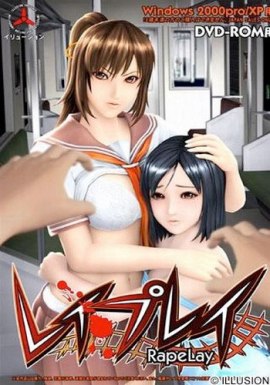 YOKOHAMA, JAPAN – Japanese-based videogame producer Illusion Software has responded to a call by Equality Now that it remove from sale RapeLay and all games that involve rape, stalking or other forms of sexual violence against women by saying that it will not stop selling the game.
YOKOHAMA, JAPAN – Japanese-based videogame producer Illusion Software has responded to a call by Equality Now that it remove from sale RapeLay and all games that involve rape, stalking or other forms of sexual violence against women by saying that it will not stop selling the game.
In announcing the action item, Equality Now has once again pushed to the forefront a clash of cultures that for years has been a source of embarrassment for the island nation.
“Extreme pornography in the form of cartoons known as hentai, in various media such as comic books, animation, computer games and online entertainment, is easily accessible in Japan and its use is widely accepted,” warns Equality Now. “Common themes of hentai include rape, gang rape, incest and the sexual abuse of schoolgirls. This latter form of hentai, known as Loli-Con, often portrays girls being sexually abused by adults in familiar positions of power such as teachers.”
The story line of RapeLay is described as follows.
“A schoolgirl around 12 years old travels on a commuter train. A man who has been following her gropes and sexually molests her. Eventually the train stops and she runs frightened into a public toilet, followed by her assailant who handcuffs and rapes her. The assailant takes her prisoner and repeatedly rapes her in various locations. Her mother and teenaged sister suffer the same fate. This family is targeted for rape as punishment because the older sister had previously reported to the police the attempted sexual assault of another woman by the rapist.”
In February, Amazon removed RapeLay from its websites after complaints by Equality Now, but clips of the game are still available on video-sharing websites. Equality Now says that Illusion continues to produce other similarly-themed games and wants them all removed from retail shelves and websites.
‘We are simply bewildered by the move,” Illusion spokesman Makoto Nakaoka told straightstimes.com. ‘We make the games for the domestic market and abide by laws here. We cannot possibly comment on (the campaign) because we don’t sell them overseas.”
In 1999, Japan banned the production, distribution and commercial use of sexually arousing photos, videos and other materials involving those aged under 18, but did not criminalize the possession of such materials. The ban also failed to ban child pornography found in animation and computer graphics.









No Comment